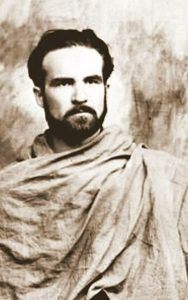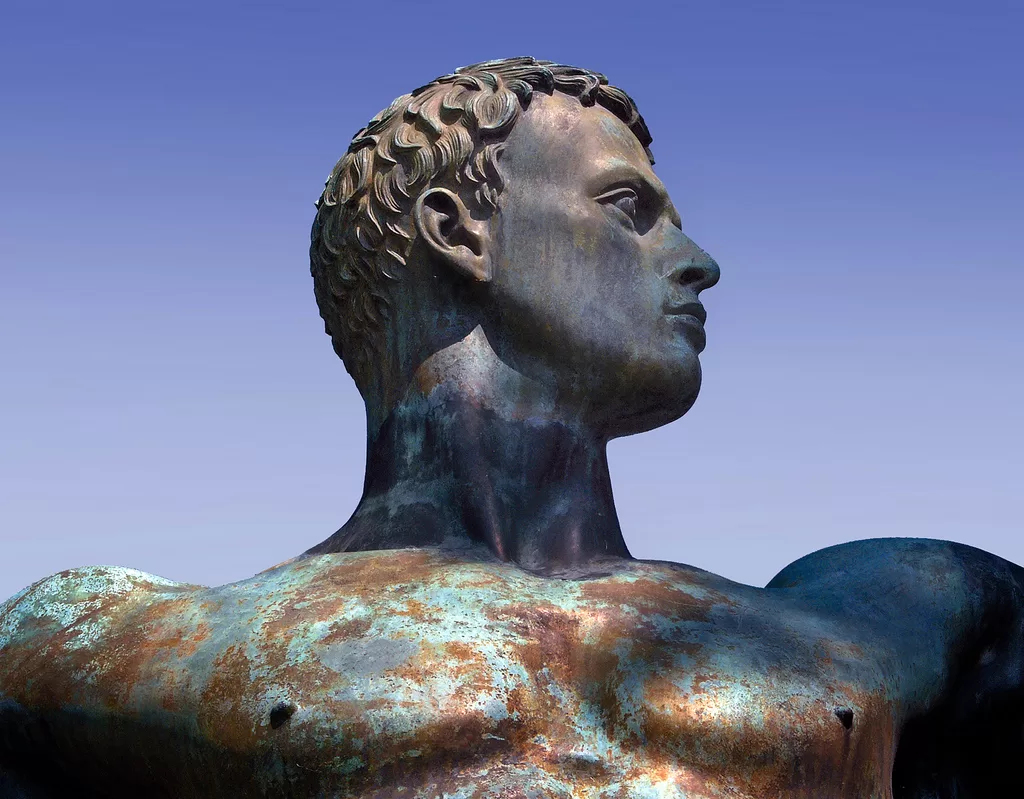I think there is no need to describe ourselves anymore. The whole world knows that we are living a sad and hopeless hour, that we are servile and powerless, that we are drowned by decay, cowardice and cynicism. Wherever you turn your head, you hear nothing but shouting, gossiping, criticism and sorrow. We lament ourselves without any pride, we lose our time complaining, we waste our time in critique, in negation, in arguments. If an alien would investigate our words – and wouldn’t investigate our life too – they would think that we are the most beaten-by-God people, that we are on the brink of a definitive catastrophe, that everything is lost, and lost forever. We are truly people without pride in suffering; or, more precisely, we’ve completely lost this pride.
In the middle of this total decay, in the middle of this social swamp in which we live in – one single cry deserves to be cried out: joy, praise, prophetic hope. One single gesture deserves to be accomplished: the gesture of creation, the gesture of Life which knows how to resume everything from the beginning, the furious gesture of a mason which lays every day a foundation, which the destiny of night crumbles. In the middle of this modern-day hell, with its decaying fumes, with its lights of cadaveric phosphorescence, with its human misery, with its ethical meltdown, with its spiritual chaos – one single virtue has to raise its arms: manliness, pride in one’s suffering, pride in one’s misery, pride in one’s hopeless hope. When everything around you is rotting, why should you be afraid? Your life can always begin anew. When everything loses its sense, everything becomes void and futile, why should you cry? Your simple living presence tramples all the nothingness of the world, all the futility of creation.
It is true; we are stupid and reprobate; we are small and sinful; we are incapable, servile, trivial, mediocre, all of it. Faced with these truths, I would want a dozen youths to shout: and what?! To shout their disdain towards destiny, towards the saddened hour we are fated to live, towards our miserable human condition, towards everything that is mediocre, lamentable, and inert in our European and Christian tradition. To shout every day, in front of every man, in front of every event: and what? And what? Everything you say is true; all that is happening is true; our tragic limitation is also true, and our decay and the evanescence of our actions are true. It’s true; it’s true; it’s true!
And still, to shout And what? As long as I am alive, as long as Life is on my side, as long as the miracle of Creation is in my flesh, in my blood, in my spirit – what power of darkness could swallow me? What mirage of the void could crumble me? What chaos is so great that it could measure up to that immeasurable iota of Life that was given to me?
No, gentlemen, everything that is rotting around us is not made to depress us; on the contrary, it is an invitation from Life to imitate its initial gesture, creation; birth; rebirth. It is an invitation to good-will, to courage, to action. To action which doesn’t always mean exterior effort, but our life itself, its triumphant accomplishment, its victorious growth and organicity. Our life – let that be our action. Let us enlighten it, exalt it, maintain it unaltered and beautiful amidst so many forces of darkness. Our life alone is the response over which no negation, no critique, no metaphysical dynamite can pass. Death does not exist but for the one who accepts it. Defeat does not exist but for the one who doesn’t return to the battle. Everything could be destroyed, everything could crumble to dust, everything passes – except for the gesture of Life. And this gesture is in us, its justification is our existence itself.
All the objections I meet lately in my path seem to me so absurd; so absurd and inefficacious. One tells me: modern man is attenuated and mediocre. Maybe it’s true. And what if it’s true? This is a reason to be even more hardened in our suffering and our creation… To scream even louder our joy at being modern men. To have the certitude that, through our gesture of Life, we will overcome our present-day limits.
Another one tells me: we live in a tragic hour, an hour that cancels any attempt at creation, any spiritual impetus. And what does this prove? The more tragic the hour, the more wicked, the darker it is – the more we need to harden ourselves in hope, in effort, in manliness. There are entire nations which have suffered much more than us. There are people who experienced a tragedy much more wicked than ours. I think that Prometheus, Oedipus, Antigone, Phaedra – suffered an inner hell a thousand times more arduous than ours. And if they let themselves be defeated, they did it because they didn’t know Hope. But we, who know both Life and Hope, we who verify daily our hopelessness through our hope – do we still have the right to complain, to criticise, to resign ourselves?
All of these prove a lack of manliness. It makes me want to shout when I see so many smart people despairing about our human and social condition and lamenting themselves to the four winds that they are suffering, that everything is empty, that everything is futile. All of this is trivial. All of this proves nothing. You could scream for a thousand years that Life is pointless – it will not stop even for a moment to grow, to gush into everything, to proclaim its victory everywhere. Any critique is useless, any negation inefficacious in front of Life. Life which can do everything – in spite of any chaos or any catastrophe. The Earth itself could split open, and it still wouldn’t mean anything. If I was the last man left on Earth, I would still shout: “AND WHAT?” in front of any cataclysm. What can death do against the miracle of our Life?…
But these simple things – no one wants to take notice of. There’s a panic of desperation, a collective mania in the face of evil, a hysteria in the face of the ephemeral, a suggested fear in the face of nothingness. All these people look at the darkness and chaos with passion. They are afraid of light, because light means absurd resistance against any eventuality, continuous overcoming, continuous Life. It is much more comfortable to sit in darkness and negation. It is much less responsible. It is much less courageous to despair than to hope against any evidence and any hopelessness.
Come on, gentlemen, slow down with the whining, slow down with the desperation. Search inside your inner being for that iota of divine madness and action, bring to light that ridiculous AND WHAT? and throw it manfully into the heart of the rot which surrounds us. There is so much death around me that I don’t know how to compress my wild joy that one day – a new world will grow on top of all these corpses.








